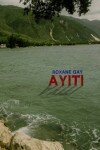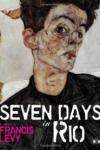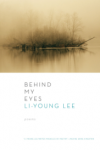-
FEATURED

Ten Scenes From A Movie Called Mercy by Matt Bell



White Horse, Dark Rider by Nels Hanson

Waltzing Birds by John Minichillo & Katrina Gray

The Lobbers Share Thanksgiving Dinner as an Asteroid Hurtles Toward Earth by Sal Pane

The Dead Center of The Sun by Brad Green

It Made Him Stronger by Kevin Catalano
-
Lit Journals
-
Indie Presses
Category Archives: Reviews
Creative Engagement

As someone who rabidly composes and reads mixed-genre works it is often the case that I can only open a book of “prose” or “stories” and read a small portion of it before I begin to get distracted or frustrated. I admit that I am a stimulus junkie and the usual pace of more traditional prose or story-based works is hard for me to stay in.
However, Roxane Gay’s Ayiti, coming out in traditional-ish sentences, is far from traditional prose or story. Rich/rife(?) with octane eroses and griefs, Roxane’s book is an acidic opera. I call Ayiti opera because of the way/s that it employs and embodies content not as linear drive through a lengthy span of pages (as is often the case with more traditional narrative) but poetically—rendering these valleys of sensation and collapse that force a reader into new ways of gauging its content—that force us into new ways to gauge its content as that content moves into our bodies. Ayiti is content that stays inside.
If a reader were to pick up this book as a “book of prose” or a “book of stories” and bring along with them all aspects of what those terms traditionally and historically mean, they might be met with deluges of sensation they were not exactly expecting. I am stricken to stay in Gay’s Ayiti because there is so much in it that I am not sure about (un-resolvable) while simultaneously there is so much within it that makes me somatically sure. Continue reading
Seven Days In Rio

In addition to holding a third-degree black belt, Francis Levy knows a thing or two about raising hell. Still, after glutting his first two novels with a blitz of psychosexual disorders and more bare-assed buggery than a stroke mag, should a stranger stop Levy on the subway and gush about being a huge, HUGE fan, the author’s first instinct would have to be an uh-oh backward step.
Installations sure to provoke as many walkouts as donors, Erotomania: A Romance and Seven Days in Rio offer opposite sides of the same satyric coin, with the former presenting by far the stickier flip. Despite its heady conceptual foundation, exploring animal instinct, recapitulation theory, and the dawning of human consciousness amid an evolving relationship, at the page-level, Erotomania’s boy-meets-nympho love story mostly just cums in your face. Liberated from his debut’s tedium of assplay and fluid discharge, Levy unleashes Seven Days in Rio as a no less frisky but much freer beast: where Erotomania propped the pounding over and over and over of compulsive sex atop an illusive psychoanalytic foundation, Rio props psychoanalysis atop an illusion, or delusion, of breezy tropical sex. Continue reading
The Sky Is Falling

In Season Six of Doctor Who, one of the most highly anticipated episodes was written by Neil Gaiman, the author known for his Sandman series along with his novels like American Gods and Coraline. In this episode, the Doctor and his companions Amy and Rory crash land on an asteroid in an alternate universe. During this episode, we learn that the asteroid is a sentient planet that has trapped the soul of the TARDIS (Time and Relative Dimension in Space, or the blue police box that is a time machine) in a woman.
Continue reading
Posted in Reviews Tagged Caketrain, Dr Who, Neil Gaiman, Ryan Call, The Weather Stations Leave a comment
Behind My Eyes by Li-Young Lee

Li-Young Lee’s fifth book of poetry, Behind My Eyes, is a tender hymn to the hardships of his childhood, expertly combining the feelings of an adult who’s seen too much of the world with the innocence of a child who doesn’t understand the world’s injustice.
He opens with a poem entitled “In His Own Shadow,” and one gets the feeling he is talking about himself in the third person. The boy in the poem is affected by the line: “While all bodies share the same fate, all voices do not,” and it is this line that carries interest into the following poetry.
The story that follows this boy, possibly Lee himself, is there, but detached and only seen in glimpses throughout a medley of emotions. His style is somewhat jerky, not only in transition from poem to poem, but from line to line. Continue reading
